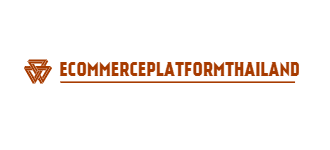The point of sale (POS) transaction, an important component of a point of sale system, is the location where a consumer makes a payment for products or services and where sales taxes might be due. It may be a physical cash counter with POS terminals and devices processing card payments or a virtual transaction stage on a computer or mobile electronic device.
Effectively create point of sale transactions
Creating a great point of sale (POS) transaction is an important priority for retailers, nowadays. Businesses have traditionally placed POSs near store exits to increase the rate of impulse purchases when customers depart. On the other hand, changing POS locations will provide retailers with more opportunities to micro-market particular product segments and impact earlier customers in the sales funnel.
Department stores, for example, also have a point of sale transaction obtained to specific product categories, such as appliances, electronics, and clothing. Rather than merely handling purchases, the assigned workers should actively promote goods and provoke customers through purchasing decisions. Similarly, the format of a point-of-sale (POS) can influence benefit or purchasing behavior by providing customers with various payment methods.
Electronic point-of-sale software systems help retailers run more efficiently by automating transactions and keeping track of important sales data. Besides, installing a network of data-capture devices, such as card readers and barcode scanners, will help retailers improve functionality.
Types of point of sale transaction
Retailers may not be aware that there is an array of point of sale transactions, each type will fit in with a particular retail business. To help you make accurate decisions when choosing your point of sale transactions, here are some common POS transactions currently available on the market.
POS on the terminal/desktop
The terminal POS device is most often used in companies with a transparent cash register or a counter where all transactions occur. Most devices that come under this point of sale require internet connectivity to operate properly. Some applications may be entirely cloud-based, which needs an even stronger online link.
Mobile POS
Compared to the terminal POS system, the mobile POS system is much smaller in size but just as useful. It’s usually sold as a mobile app that comes with a credit card reader attachment. For added flexibility, barcode scanners and receipt printers are available as optional attachments. In most cases, the app is provided for free in return for signing up with a payment processor. The card reader, as well as any other attachments, are given for free.
POS for tablets
Tablet POS is the next step up from mobile POS. This type of POS requires the same level of versatility and efficient inventory tracking,bookkeeping, employee tracking features.
A tablet POS system operates similarly to a smartphone POS system. The POS software is mounted on the tablet, and any optional accessories (such as a card reader or receipt printer). The only difference is that the mobile device is normally much larger and has useful functionality that fits in with retail larger retail businesses.
POS self-service kiosk
A self-service POS (point-of-sale) system is a specialized solution that enables customers to complete transactions without the assistance of cashiers. For example, if a large theatre provides a self-service kiosk, its consumers will be able to buy and schedule movie tickets on their own.
To Sum Up,
Point of sale transactions can greatly support retailers to prevent common issues like out-of-stock sales, purchase and orders management, etc. Additionally, retailers are enabled to monitor pricing accuracy, inventory adjustments, gross revenue, and sales trends depending on the software features.
►►►► Các sản phẩm khác: Magento POS, BigCommerce POS, Shopify POS, Woocommerce POS, NetSuite POS, Mobile POS, White label POS, Reseller POS, Retail POS and Commercetools POS
Follow us for more information about technology and eCommerce!
Source: https://www.connectpos.com/
►►►► Our related services: low code platforms, cloud networking, adobe marketing cloud, IT jobs in Vietnam, partner strategy for ai, digital customer experience strategy, digital transformation, core banking platforms, agentic ai companies, phần mềm quản lý doanh nghiêp, nền tảng quản trị doanh nghiệp, phần mềm nhân sự, phần mềm chấm công, phần mềm tính lương, phần mềm KPI, phần mềm OKR, Phần mềm quản lý dự án, App chấm công, Cách tính lương, Ftrip Viet Nam, vietnam itinerary 2 weeks, north vietnam 2 week itinerary, northern vietnam 2 week itinerary, vietnam luxury tours, custom travel itinerary, best tour operators in vietnam, Vietnam Photography Tour, Photography Tour Guide Viet Nam
